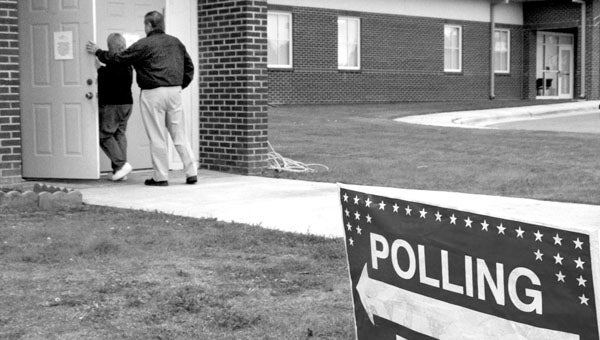Worth the changes?
Published 8:56 pm Tuesday, September 16, 2014
 When it comes to the upcoming general election Nov. 4, voters will notice some differences — differences caused by changes in state election laws.
When it comes to the upcoming general election Nov. 4, voters will notice some differences — differences caused by changes in state election laws.
For example, in recent years, the one-stop voting period was 17 days. This election cycle, the number of days for one-stop voting will be 10 days. That change took effect Jan. 1. Because the Beaufort County Board of Elections is closed Sundays, voters will have just nine days to mark ballots during the early-voting period.
In 2013, the North Carolina General Assembly, under the control of Republicans, changed the state’s election laws. The changes enacted by the General Assembly included eliminating straight-ticket voting. Also, provisional ballots cast outside a voter’s precinct will not be counted, according to the revised law.
Those changes, along with stricter voter ID requirements did not sit well with some organizations.
Last month, a federal judge declined to issue a preliminary injunction that would have delayed implementation of the changes. The N.C. NAACP and the N.C. League of Women Voters are appealing the judge’s decision. They contend the changes should not take effect until a lawsuit challenging them goes to trial in July 2015.
Perhaps General Assembly did not anticipate an unintended consequence of reducing the number of early voting days from 17 to 10. Although the number of early voting days is reduced by seven, boards of elections must be open for early voting the same number of hours they were open when early voting took place over 17 days, according to Kellie Harris Hopkins, elections director for Beaufort County. That means longer hours for elections officials on days when there is early voting.
Reducing the number of early voting days from 17 to 10 reduces opportunities for voters to mark their ballots early, voters who often find that going to the polls on Election Day is difficult, if not impossible, for various reasons such as job requirements, transportation issues or health-related problems. Reducing the number of early voting days imposes a hardship on some voters. When it comes to voting, the goal should be to encourage voters to participate in the election process, not place hurdles in their way as they try to participate.




